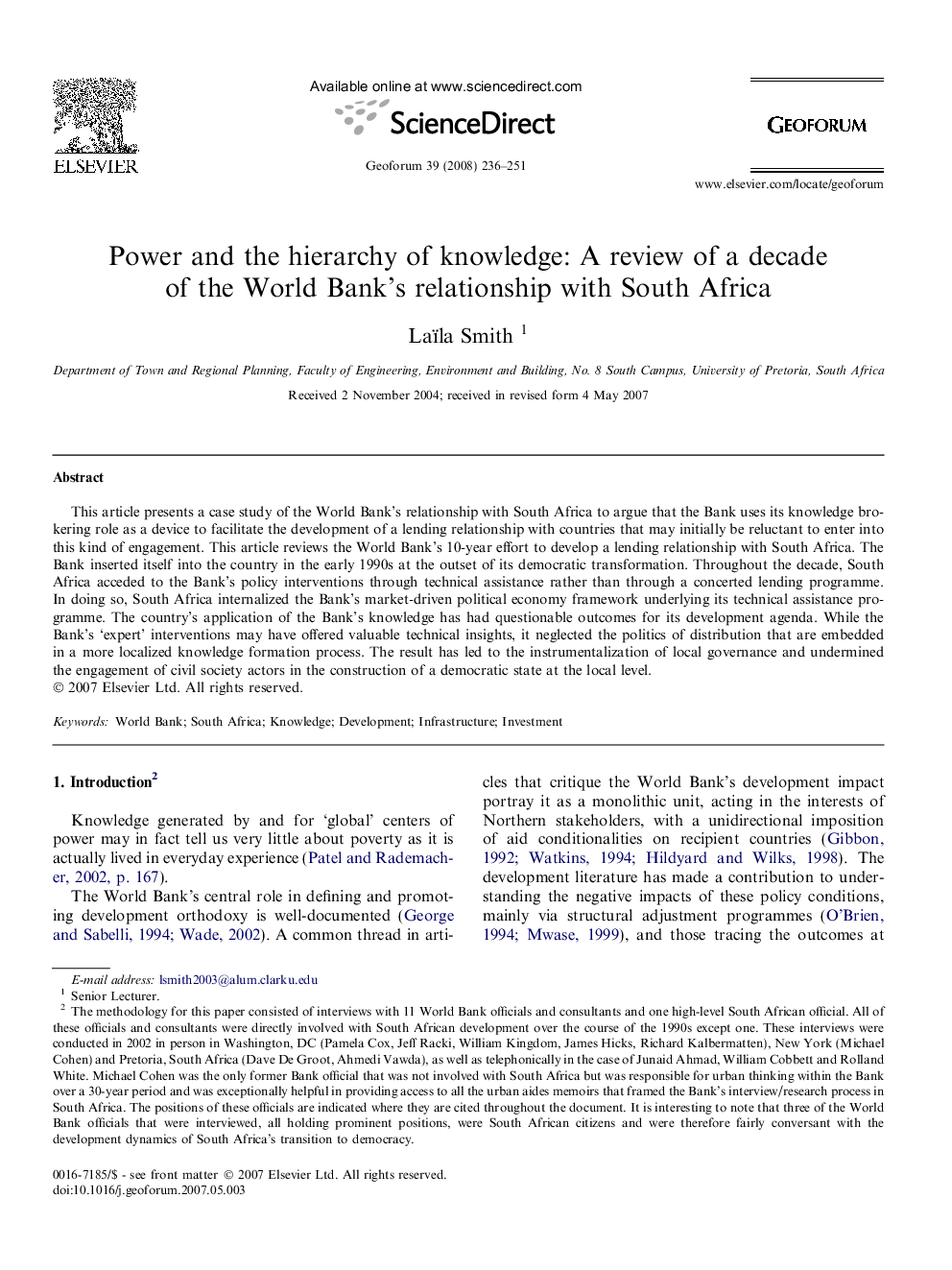| Article ID | Journal | Published Year | Pages | File Type |
|---|---|---|---|---|
| 5074975 | Geoforum | 2008 | 16 Pages |
Abstract
This article presents a case study of the World Bank's relationship with South Africa to argue that the Bank uses its knowledge brokering role as a device to facilitate the development of a lending relationship with countries that may initially be reluctant to enter into this kind of engagement. This article reviews the World Bank's 10-year effort to develop a lending relationship with South Africa. The Bank inserted itself into the country in the early 1990s at the outset of its democratic transformation. Throughout the decade, South Africa acceded to the Bank's policy interventions through technical assistance rather than through a concerted lending programme. In doing so, South Africa internalized the Bank's market-driven political economy framework underlying its technical assistance programme. The country's application of the Bank's knowledge has had questionable outcomes for its development agenda. While the Bank's 'expert' interventions may have offered valuable technical insights, it neglected the politics of distribution that are embedded in a more localized knowledge formation process. The result has led to the instrumentalization of local governance and undermined the engagement of civil society actors in the construction of a democratic state at the local level.
Related Topics
Social Sciences and Humanities
Economics, Econometrics and Finance
Economics and Econometrics
Authors
Laïla Smith,
